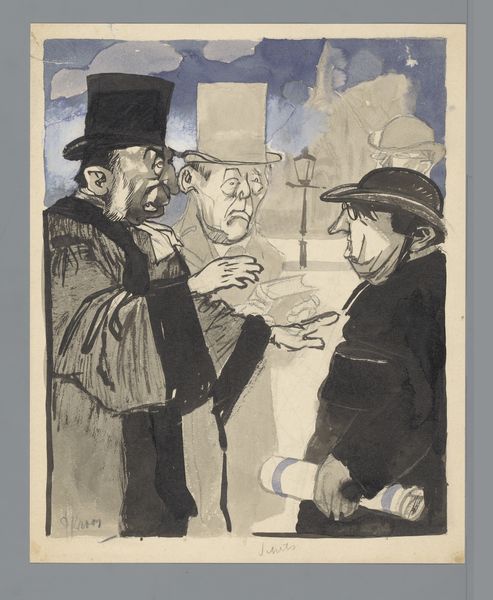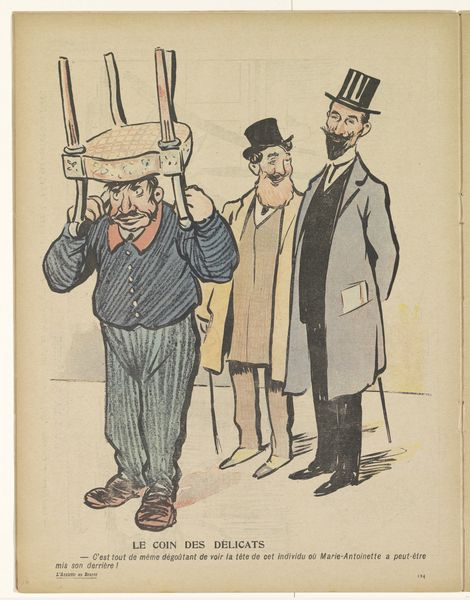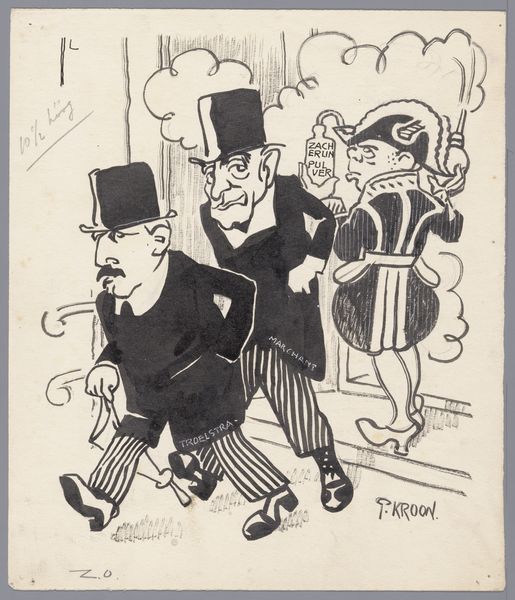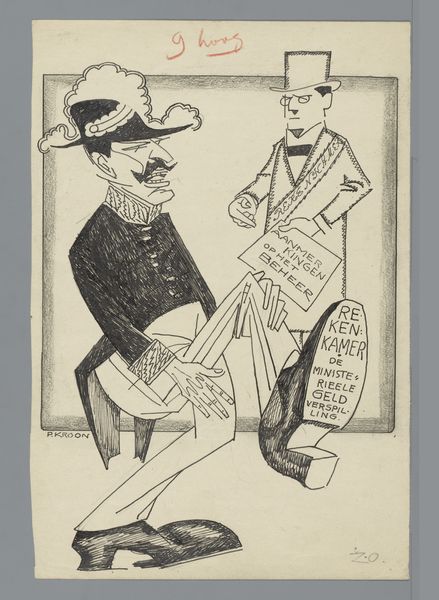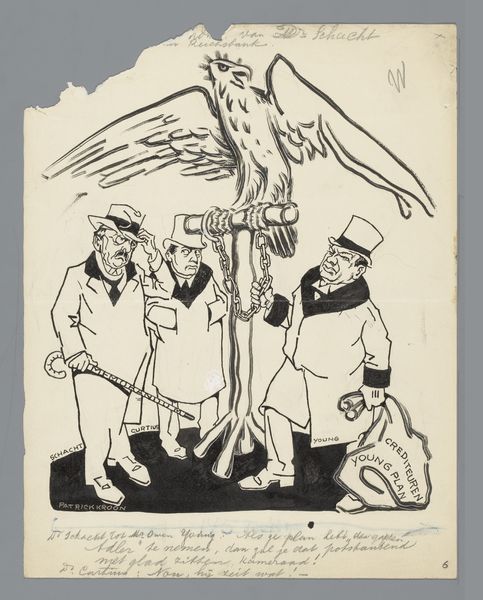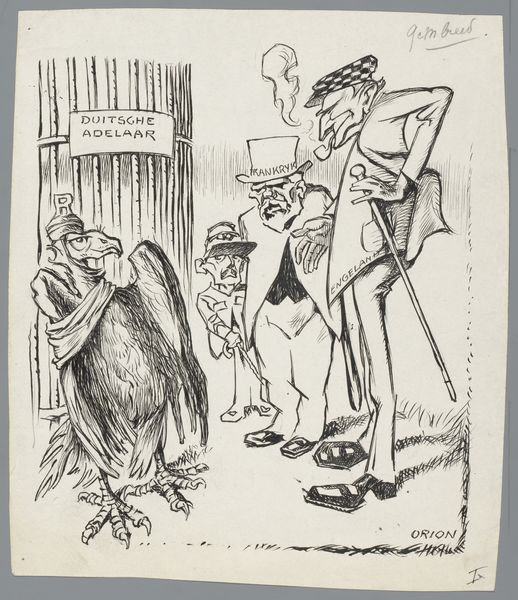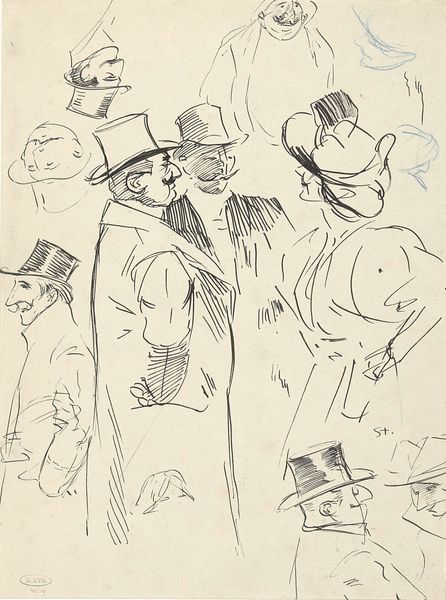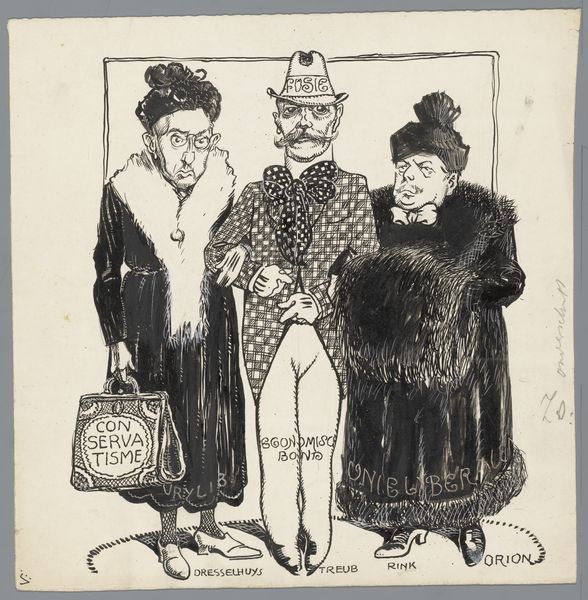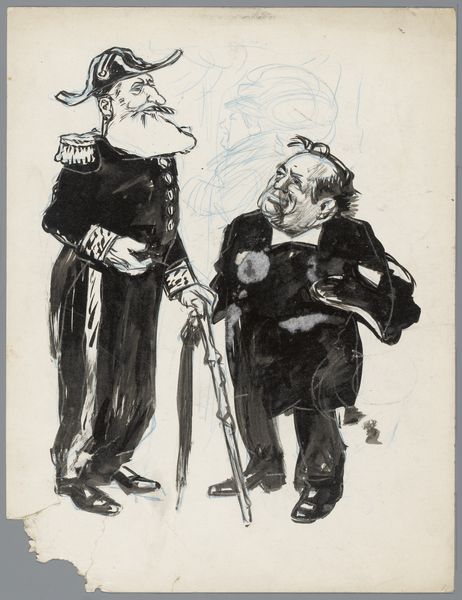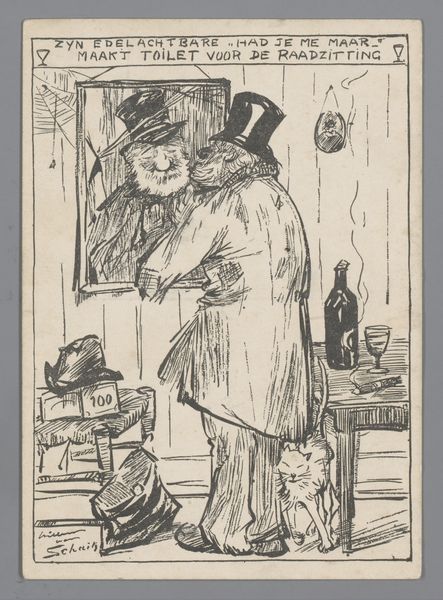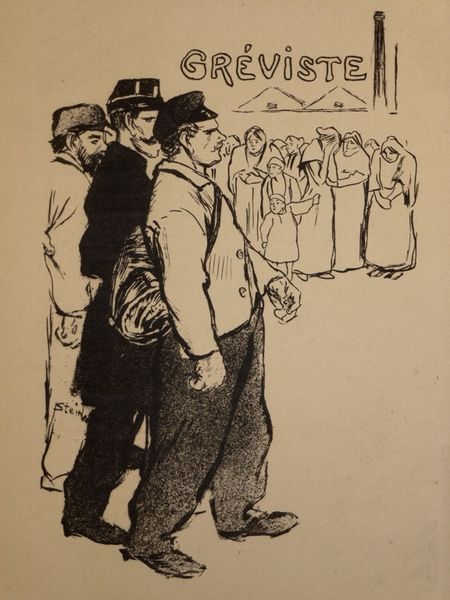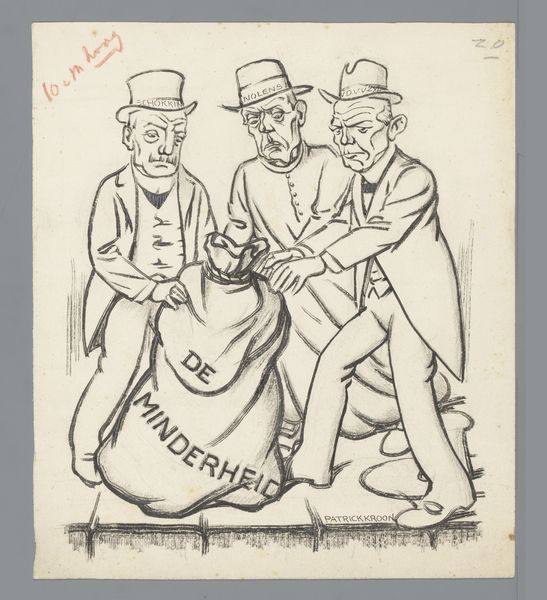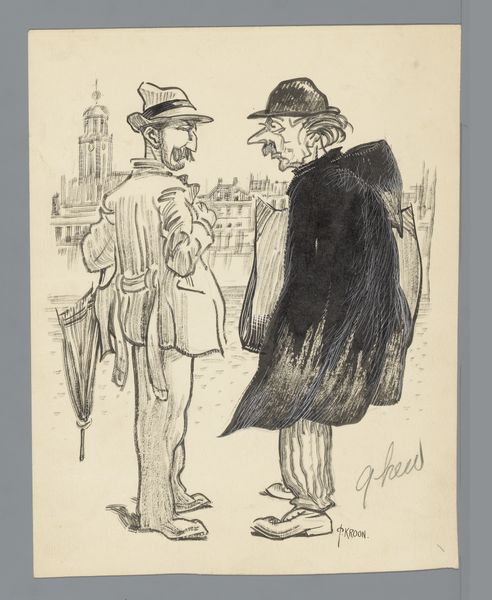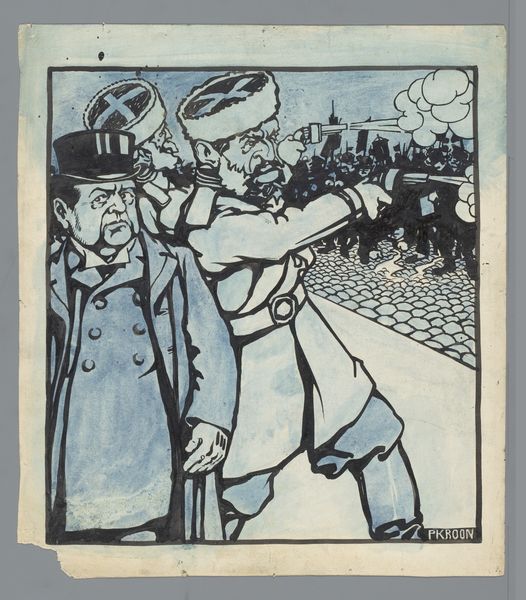
drawing, pen
#
portrait
#
drawing
#
comic strip sketch
#
quirky sketch
#
narrative-art
#
caricature
#
sketch book
#
cartoon sketch
#
figuration
#
personal sketchbook
#
sketchwork
#
visual diary
#
sketchbook drawing
#
pen
#
storyboard and sketchbook work
#
sketchbook art
#
modernism
#
realism
Dimensions: height 250 mm, width 200 mm
Copyright: Rijks Museum: Open Domain
Editor: Here we have Patricq Kroon's pen drawing, "Protest tegen de Duurtewet, 1920". I'm struck by the almost grotesque exaggeration in the figures. What kind of cultural echoes do you see resonating from this piece? Curator: Well, the exaggeration you note immediately suggests caricature, a very pointed form of visual rhetoric. The "Duurtewet," referencing high cost of living, connects to anxieties deeply embedded in post-WWI Europe. These aren't just any figures, are they? Consider the clothing; what do these signifiers – the top hat, the striped trousers – communicate? Editor: They seem to represent different social classes perhaps? The one with the top hat seems wealthier, certainly more than the figure in the cap. Is the artist suggesting something about how different classes experienced these economic hardships? Curator: Precisely! Kroon uses recognizable visual shorthand for societal strata. Think of clothing as cultural armor, reflecting and protecting identity. The protest itself then becomes a stage where these symbols clash. And notice the direction of their gestures; do they converge or diverge? Editor: I see... they seem to be arguing, their hands outstretched in disagreement. So, it’s not just about depicting a protest, but also the internal tensions within it. I hadn’t considered the gestures so literally! Curator: Consider how such symbols, embedded in images, shape our understanding even today. Aren’t we constantly decoding such visual cues, consciously or not, in the theater of modern life? Editor: That's fascinating; looking closer, it seems Kroon anticipated our own constant interpreting of symbols. Thanks, I have a whole new appreciation for this drawing now! Curator: Indeed. Art invites us to engage with cultural memory, and reflect on how visual symbols connect us to the past, informing our present.
Comments
No comments
Be the first to comment and join the conversation on the ultimate creative platform.
